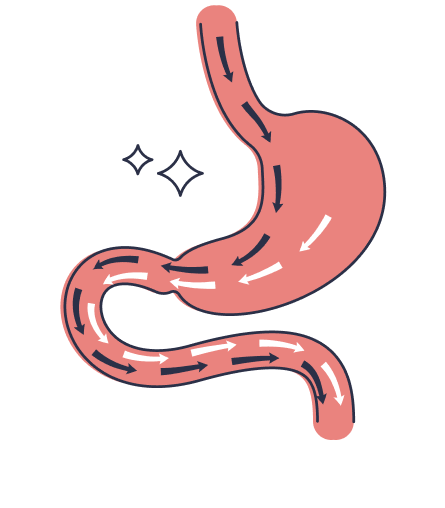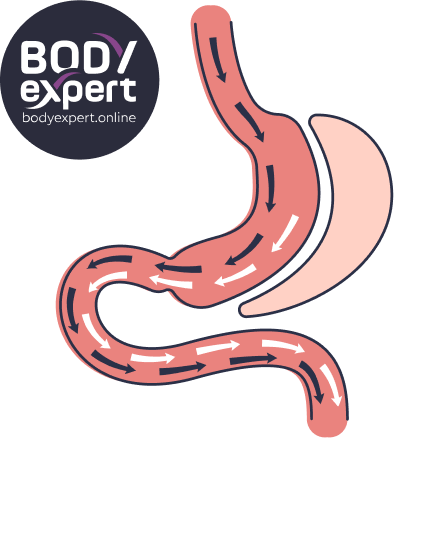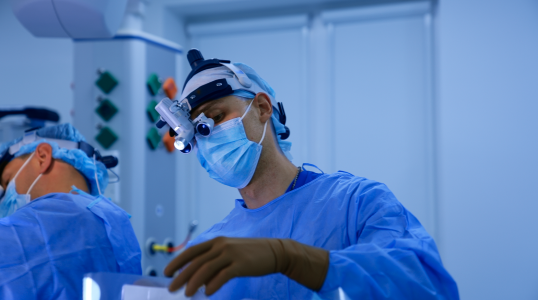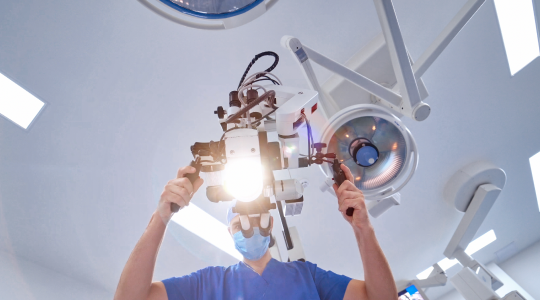
Expected results after a gastric sleeve
After a gastric sleeve in Turkey, people feel fuller sooner and food passes through the stomach more quickly. As a result, the patient gradually loses weight and regains a better quality of life.


Up to 70% savings
BMI criteria more
flexible than in France
Priority Treatment in English
and rigorous long term follow-up


Save up to 70%
80% Cheaper Than the UK, the US, Canada and Ireland
Globally acclaimed obstetric surgeons at your service
English-Speaking Care & Thorough Post-Op Follow-Up
High approval with 98% satisfied patients

Sleeve gastrectomy is a type of surgery used for weight loss that involves reducing the size of the stomach.
It is performed to promote weight loss and effectively combat obesity. Sleeve surgery in Turkey allows for the reduction of the amount of food that can be ingested to combat severe and massive obesity.
The expected results after a sleeve in Turkey are 45 to 65% loss of excess weight 2 years after the operation on average. This bariatric surgery also helps to reduce obesity-related diseases. Indeed, obesity increases the risk of high blood pressure, diabetes, cardiovascular disease, liver disease and chronic kidney disease.
The success of a sleeve gastrectomy depends on its management but also on the level of involvement of the patient. Indeed, the patient’s motivation and long-term changes in habits are essential to lose weight and guarantee a better quality of life for the patient.
In the UK, sleeve surgery is so expensive that many patients are forced to give it up. Indeed, even if the NHS covers the cost, the remaining expenses are a barrier to using this bariatric surgery procedure.
To undertake a sleeve gastrectomy, another solution is offered to you: entrust your bariatric surgery to a Turkish medical team. Turkey is an essential destination for all types of care. Sleeve surgery is no exception. With Body Expert, plan your sleeve in Turkey and benefit from English-speaking care throughout the course of the treatment. Take advantage of quality treatments offered at a very attractive price.
The gastric sleeve, also known as sleeve gastrectomy, is a surgical procedure developed to combat obesity by significantly reducing the size of the stomach. Introduced around 20 years ago, this method involves the removal of about 3/4 of the stomach, leaving only the vertical portion. Hence, it’s also referred to as “longitudinal gastrectomy” or “calibrated vertical gastroplasty with gastric resection.”
This surgery is permanent and focuses on promoting weight loss by limiting food intake. The reduced stomach capacity, combined with a decrease in ghrelin (the hunger hormone), results in decreased appetite and diminished interest in food. Additionally, after undergoing a sleeve in Turkey, patients often note a change in their stomach’s bacterial flora, leading to a preference for healthier foods such as fish and greens.
Typically, the operation lasts around 2 hours, with a hospital stay of 3 to 8 days. Most sleeves are performed laparoscopically, which involves small incisions rather than opening the abdominal wall, minimizing the risk of infections and scarring. However, in rare instances, a more invasive approach called laparotomy might be required.
The stomach is vertically divided during the surgery, and the larger section is removed. The remaining stomach is then sutured together using staples.
The criteria for weight loss surgery on the NHS vary across regions in the UK. Generally, there are multiple criteria:
Or a BMI between 35 and 40 and a serious illness. The obesity-related disease(s) may improve with weight loss, which is the case with type 2 diabetes or high blood pressure.
To be considered for surgery, the NHS candidate must have attempted diets and physical exercise but still struggled to lose or maintain weight. Additionally, the patient must be in good health to safely undergo the procedure with general anaesthesia.
This follow-up includes lifestyle changes and regular check-ups.
The waiting time for weight loss surgery in the UK differs depending on the city and changes over time. This waiting time can be influenced by the amount of funding allocated to the sector each year and the number of applicants. Even if you are at the top of the waiting list, someone whose life is in danger may be prioritized for life-saving surgery.
On average, patients can expect to wait several months for weight loss surgery through the NHS, and it’s not uncommon for patients to wait over a year before their first appointment for a sleeve.
If you suffer from obesity and are considering having bariatric surgery in the UK, it’s important to be patient. However, if you need urgent intervention and want to be taken care of quickly, you may want to consider travelling to Turkey for your surgery and benefit from more affordable prices.
Due to challenges in obtaining insurance coverage and the high costs associated, many patients forgo sleeve surgery. Yet, this procedure is vital in combating obesity and reducing the risk of weight-related diseases.
For those considering bariatric surgery, Turkey offers excellent value. Opting for a sleeve surgery in Turkey means accessing top-tier bariatric expertise at a competitive price. With Body Expert, you’re in the hands of the country’s most skilled surgeons, and you’ll receive personalized care in your preferred language. Body Expert carefully vets each surgeon to ensure they’re highly reputable and experienced, equipped with the latest technology to guarantee patient safety and comfort.
With Body Expert, patients considering a sleeve surgery in Turkey receive comprehensive support throughout the entire process. Our goal is to educate and prepare patients to adopt healthy lifestyle habits, ensuring the long-term success of their surgery. The Body Expert medical team is renowned for its meticulous care and enduring commitment to patient well-being.
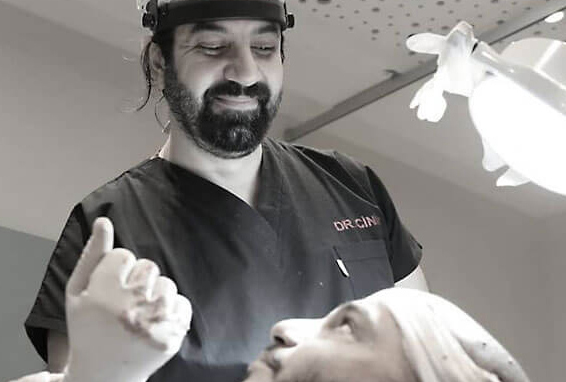
We have meticulously handpicked the top bariatric surgery clinics and surgeons in Istanbul and Antalya, Turkey, based on a rigorous selection process.
With Body Expert, every step of the patient’s journey is monitored and communicated transparently, ensuring a trustworthy and comprehensive care experience.
At Body Expert, we’re dedicated to ensuring a seamless experience from when you arrive and even after you depart, consistently prioritizing your comfort and understanding in English.
In medical tourism, long-term patient follow-up is paramount. Body Expert remains committed to assisting and monitoring patients after their procedure, ensuring their ongoing well-being.”
Place your confidence in Body Expert during this significant medical journey. Standing at the forefront of medical tourism, we extend personalized guidance and unwavering support for individuals pursuing gastric sleeve surgery in Istanbul or Antalya. Our core commitment is to offer unmatched care at competitive prices, with guaranteed clear communication in your preferred language.
Throughout every step, from the initial consultation to the post-operative care, a dedicated Body Expert advisor will be there, ensuring you’re well-informed and supported. By choosing a gastric sleeve surgery in Turkey with Body Expert, you’re aligning with our deep-rooted expertise and the potential for substantial savings—up to 80% compared to average prices elsewhere.
3455 vues
0 commentaires
0
8830 vues
0 commentaires
0
7682 vues
0 commentaires
2
After a gastric sleeve in Turkey, people feel fuller sooner and food passes through the stomach more quickly. As a result, the patient gradually loses weight and regains a better quality of life.
You can lose 45 to 65% of your excess weight with a sleeve in Turkey. For example, for a person of average height (1.70 m) with a BMI of 40 kg/m², the expected weight loss after 2 years is 25 to 35 kg. In most cases, the weight loss is permanent.
Obesity is a long-term condition that increases the risk of other health problems, known as comorbidities. It can cause various complications, including metabolic problems such as diabetes, fatty liver and high blood pressure, as well as mechanical problems such as chronic joint pain and inflammation.
A sleeve procedure in Turkey can help to reduce weight and lower the risk of developing health problems associated with obesity.
Preparation for sleeve surgery in Turkey is essential to the success of the procedure. This preparation consists mainly of various health checks and a diet that is adapted to the weight to be lost.
Sleeve surgery, like other bariatric surgeries, requires good preparation. During the preparation phase, the patient must meet with various medical professionals (surgeon, nutritionist, physician, psychologist/psychiatrist, dietician…) and undergo examinations, including
Sleeve surgery requires a very large investment on the part of the patient, especially in terms of lifestyle changes. The success of sleeve surgery in Turkey depends not only on the experience of the bariatric surgeon, but also on the adoption of a healthy and balanced diet before and after the operation.
Sleeve surgery alone does not resolve obesity. It necessitates significant behavioral modifications to shed weight, stabilize it, and avoid dietary deficiencies that might potentially damage your health.
Sleeve in Turkey is accompanied by efforts to ensure the durability of the procedure results. The patient must follow a dietary rebalancing to relearn how to eat in a healthy and resonant way without eliminating certain small pleasures. Also, it is necessary to practice regular physical activity. Gradually, the patient can resume cardiovascular activities such as walking, cycling or swimming. The performance of muscle-strengthening exercises, their duration and intensity may increase as the sessions progress.
A balanced and varied diet is essential to increase your chances of losing weight and avoid nutritional deficiencies. Although vitamin deficiencies are less common after a sleeve than after a bypass, they are still possible. To prevent and treat them, the patient needs to be monitored over the long term and plan to take vitamin or mineral supplements.
Although sleeve surgery in Turkey can be effective, it is important to note that it does carry some risks. Although not common, complications can occur and should be carefully considered. These complications can include the development of an ulcer in the remaining part of the stomach, stenosis (narrowing) of part of the remaining stomach, or poor healing resulting in a fistula. Although fistulas are rare, they can cause stomach contents to leak into the abdomen and require revision surgery and a longer hospital stay. In addition, sleeve surgery can increase the risk of gastroesophageal reflux, oesophageal inflammation and, in rare cases, bleeding within 12 hours of surgery. It is important to discuss these risks with your healthcare provider so that you can make an informed decision about having the procedure.
All three types of bariatric surgery have their advantages and disadvantages. It is difficult to say which procedure is best without knowing the patient’s needs, lifestyle and health. It is important to discuss this with your doctor and then with a surgical team who can advise you on the most appropriate solution for your profile.
Abdominoplasty is not mandatory, but it is often necessary after a sleeve. In fact, after having a sleeve and losing a lot of weight, excess skin can remain and cause aesthetic embarrassment. In this case, the best solution is an abdominoplasty. Abdominoplasty is a plastic surgery procedure designed to restore a harmonious figure. It consists of removing the excess skin between the navel and the pubic area and tightening the healthy skin.
There are no specific risks to having your sleeve done in Turkey. Turkey has experienced bariatric surgeons who have been handpicked by Body Expert. Having your sleeve done in Turkey with Body Expert means being assured of rigorous support, the best care and low prices.
The diet after a sleeve must be healthy and balanced. During the first 2 weeks, it is necessary to eat liquids and to divide your meals. During the 3rd and 4th weeks, food can be mixed and should not be too hot or too cold. From week 5, food should be well cooked and cut into small pieces. Finally, after week 7, the diet is normal. The patient can reintroduce foods one at a time, maintaining healthy eating habits.
After a sleeve in Turkey, 1.5 litres of water a day is recommended. Water should be drunk between meals, not during meals. It is also advisable to drink water slowly, as the opposite can cause stomach tension and constipation. Fruit juice can be consumed after a sleeve in Turkey with the doctor’s permission. Finally, soda is not recommended after a sleeve in Turkey due to the gas and acids it contains.
After sleeve surgery in Turkey, weight loss is gradual and usually takes 12 to 18 months. Good to know: Two years after the operation, it is possible to put on weight again. This is usually normal and moderate and stops once the body has stabilised.


